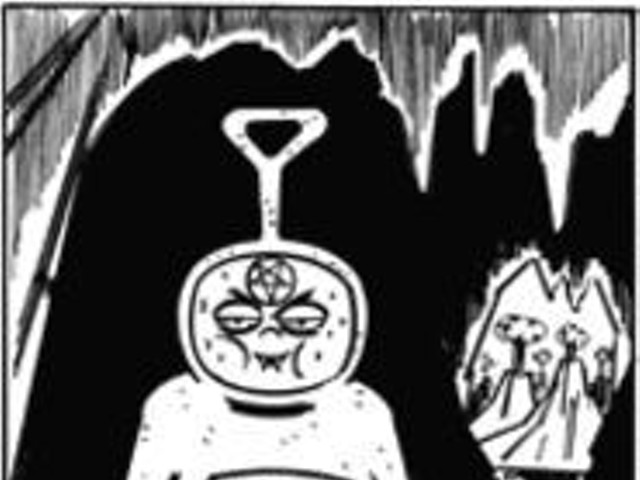Unlike the letters Pacheco and Judd have exchanged over the last month, the details of the spat are a bit drab. This brushfire has to do with how the early-retirement program was offered and administered at UM-St. Louis (the name the university types want to use for what everyone else, including Pacheco, calls UMSL, pronounced "um-sell"). At the center of the caustic correspondence is Blanche Touhill, the UM-St. Louis chancellor who previously was the target of much faculty grief over her plan to build a $40 million performing-arts center on campus. Faculty saw it as a Taj Mahal project and a huge, costly mistake when other fiscal needs on campus were going unfulfilled.
This most recent flap began as faculty discovered that several top administrators were able to take early retirement and keep working, thereby reaping a financial benefit. The Faculty Council cried foul, because they thought faculty members weren't allowed the same option. That perceived slight, reported in this space a while back, prompted the Faculty Council on April 6 to pass a resolution expressing no confidence that the early-retirement rules were being administered consistently. The council wanted to know how the program was administered, charging that "it heavily favored a small number of administrators closely identified with the Chancellor and was unfairly biased against the faculty in general."
Judd dashed off a letter to Pacheco on April 12 about the resolution, and on April 18 Pacheco responded, saying he would not recommend an investigation by the Board of Curators. In a May 5 reply, Judd wrote Pacheco that the university president's letter "took me by surprise, inasmuch as it contains inaccuracies that one would not expect to find in such a letter." At the end, Judd told Pacheco that his recommendation to take the matter up with Touhill or her "designee" was "a complete abdication of responsibility on your part. Regretfully, I have come to agree with my colleagues on the Faculty Council who expressed skepticism that you would dispassionately consider complaints about how the (early retirement) program was administered." Then, in a last-sentence blow to the solar plexus, Judd said he was copying the letter to Missouri Auditor Claire McCaskill.
Well, then things got a bit ugly.
A May 11 letter written by Pacheco started off by saying Judd shouldn't have been surprised by Pacheco's refusal to investigate the program, then added, "Your apparent obsession to 'nail the chancellor' may have caused you to overlook a number of important matters."
After citing his point-by-point disagreement with Judd, Pacheco hurled this back: "I believe that it is you and not I who abdicated a responsibility to be objective about UMSL and its leadership." The president then praised Touhill for her "vision, energy, resourcefulness and dedication." Pacheco stated that he was copying his letter to McCaskill because Judd had "chosen to unnecessarily involve the State Auditor in this imbroglio." Pacheco said he hoped that McCaskill would recognize "this is simply a continuation of past efforts to denigrate Chancellor Touhill and others, and not worthy of her time and energy."
On May 12, Judd dashed off another note to Pacheco, saying, "I find it regrettable that you have chosen to personalize this matter by making unfounded attacks on my motivations and character. Perhaps you should consider whether it reflects well upon the University of Missouri for you to respond with invective to a legitimate expression of faculty concerns." Judd closed by telling Pacheco he would not "respond to your letter in kind."
Gee, that's too bad -- the level of vitriol was improving.
WHASSUP WITH THE LEMON SQUEEZER? The first mistake was reading the label. Ten minutes before closing time in the walk-in cooler of the Shop N' Save at Chippewa and Kingshighway, we found this display for some new fruity-tooty lemon-flavored beer. What manner of hoax is this, a shopper might ask.
It looks like a microbrewed product, but it's got a cardboard display all to itself. It's called "Doc" Otis' Hard Lemon Flavored Malt Beverage. A sixer costs $5.29, which hints that the price may be so "low" as a result of economies of scale and that it may not be a microbrewed product, because often they're a bit more pricey. Ah, yes. Beneath the logo of a Wild West "Doc" Otis, in the fine print, there it is: Anheuser-Busch, St. Louis, Mo.
That's not so bad, or surprising -- Ice House and Red Dog are owned by Miller Brewing, which is owned by Philip Morris, which is owned by -- wait, that's it. So many of these stealth beers try to fly beneath the radar and hide their Big Brother owners. The only funny, or sad, part of the "Doc" Otis mythology is to be found on the back label. The marketers have come up with a synthetic tale of how "Doc," who never existed, in 1878 brought lemon trees to California and had a girlfriend "named Linda, his favorite lemon squeezer." Oh my, we know what that means, and it's got nada to do with lemonade.
In "The Lemon Song," from Led Zeppelin II, Robert Plant moans, "Squeeze me, baby, until the juice runs down my leg. The way you squeeze my lemon, I'm gonna fall right out of bed." It's not exactly a Shakespearean sonnet, but it gets the point across. And then there's the Rolling Stones' "Monkey Man," in which Mick Jagger confesses, "I'm a cold Italian pizza, I could use a lemon squeezer. What you do?"
Of course sex sells beer. And anyone who can click the "Yes, I'm 21" box on the Budweiser Web site can download hot shots of Cindy Margolis in a cleavage-enhancing two-piece. But it's so hokey to fabricate a cornball persona for a "beer" and then inject sexual innuendo, referring to a woman as a "lemon squeezer." This from the same company that filmed those our-grandfather-would-be-proud-of-us Budweiser commercials with the antique bar at O'Connell's as a backdrop.
But it's all about the Benjamins, or the millions, and in this case A-B looks to be responding to Hooch, a lemon- or orange-flavored malt beverage that originated in England in 1995 and debuted in the United States in 1997 and has sold briskly. "Doc" Otis looks to be a stalking-horse beer, a concoction not expected to win any large popularity contest but designed to splinter off some marginal share of trendy-beer-samplers who are susceptible to the most recent experimentation. An earlier entry by A-B, Tequiza, is flavored with tequila and lime. Tequiza Extra is the same thing, minus the lime. With these brands, the big boys get a taste of the fragmented smaller market while keeping a lock on the vast hordes of beer-swillers. At last check, the homeboys at A-B had a 47.5 share of the national market. What's next? Tutti-Frutti Beer with Little Richard on the label?
FLOTSAM AND JETSAM: The most entertaining TV newscaster in the metro area is Patrick Emory -- and that's meant in both the best and worst ways. He's bound to say something weird, wonderful or wacky at least once a night. Imagine him in your living room. Oh boy. The RFT's Michael Kunz recently had that, ahem, pleasure as one of the 20 or so families this month that put up with live broadcasts from their homes during the 10 p.m. newscast. The first impression was that the entire newscast would be conducted from a home (now there's an idea), but what it ended up was a minute-or-two segment tantamount to a man-in-the-street interview, only in a live remote -- real people saying what they're really concerned about. Hmmm. So what did Kunz think of his celebrity visitor? "He's larger than he looks on TV," he says, describing Emory as 6-foot-3 and "built like a linebacker." Kunz related one telling vignette about Emory's entrance, around 7:30 p.m. "I saw a silver Mercedes drive by one way, then I saw it drive back the other way, the wrong way, on a one-way street. I thought, 'He doesn't know where he's going.'" But he got there and spoke his lines with heartfelt earnest.... For those out there wondering whether the TWA pilots -- you know, the folks who fly in and out of Lambert all the time -- have changed their minds about the $2.6 or more billion W1-W expansion at Lambert, they haven't. They remain opposed. The current issue of the Globe, a publication for TWA pilots, features an editorial by Capt. L.W. "Bud" Bensel. He contends improvements at Lambert have been delayed or avoided so that the need for an expansion will appear more urgent. W1-W is too expensive and won't appreciably improve the plight of pilots or passengers, Bensel says: "W1-W will do to our airline what Carl Icahn and inept management have yet to accomplish: W1-W will kill TWA. (We) need to kill W1-W and start pressing for those improvements at Lambert which will translate into genuine safety and capacity gains." And if St. Louis wants a "world class airport," Bensel suggests a "site other than Lambert Field."
Give us your feedback by e-mailing "Short Cuts" at [email protected], faxing 314-615-6716 or calling 314-615-6711.





